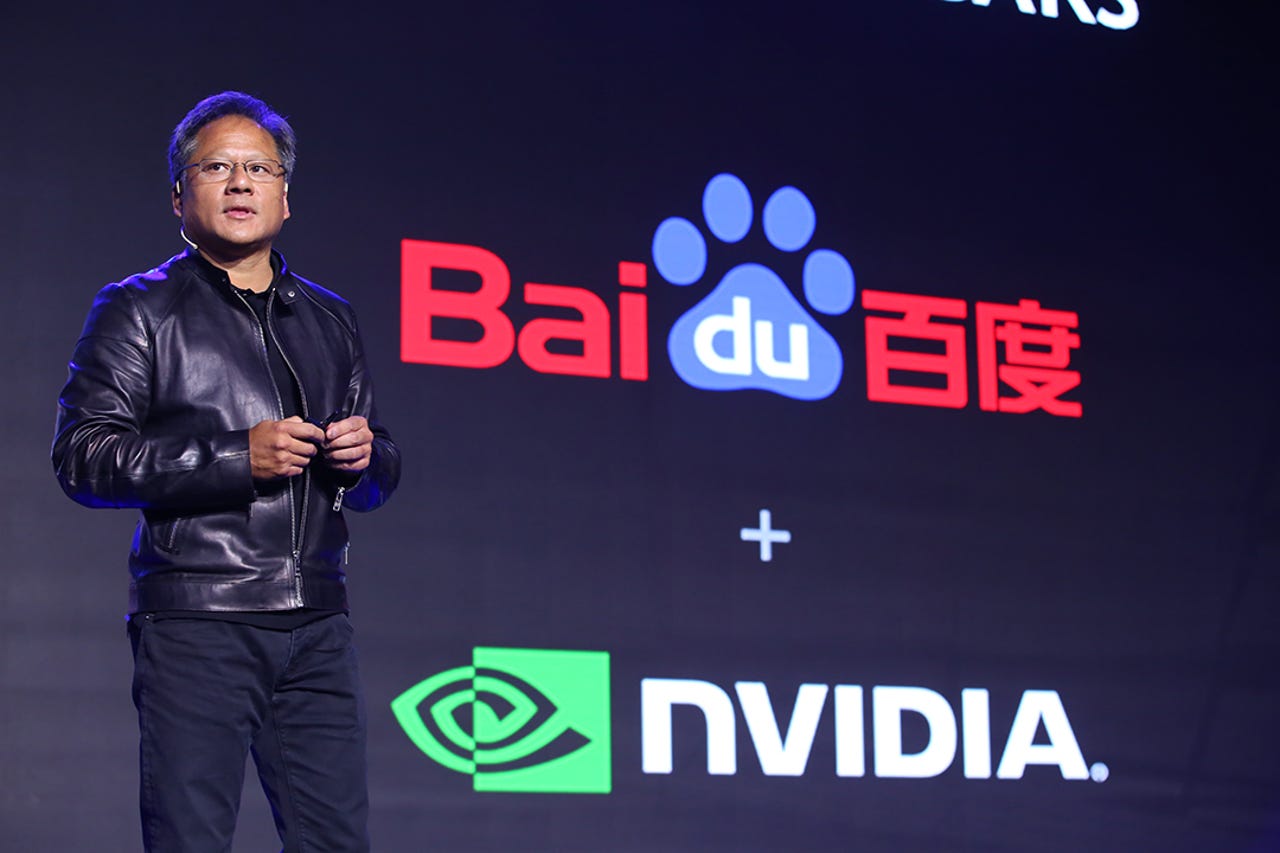Nvidia, Baidu partner to develop AI powered autonomous vehicle platform


Nvidia CEO Jen-Hsun Huang said the partnership illustrates the commitment both companies have made to advancing the use-cases of AI.
Nvidia and Chinese search engine giant Baidu are teaming up to develop a cloud-based platform for use in artificially intelligent, self-driving cars.
Featured
The partnership combines Nvidia's self-driving computing platform with Baidu's cloud and mapping technology to develop an algorithm-based operating system capable of powering complex navigation systems in autonomous vehicles.
The open platform will be available for branded car OEM consumer vehicle offerings, as well as fleets of driverless commercial vehicles.
The companies are going after Level 3 autonomous vehicle control, which means the car can drive itself (and park itself) in some circumstances, but with a competent human driver at the ready.
Nvidia CEO Jen-Hsun Huang said the partnership illustrates the commitment both companies have made to advancing the use-cases of AI.
"We can start applying these capabilities to solve the grand challenges of AI, one of which is intelligent machines. One of the intelligent machines we would like to build in the future is the self-driving car," said Jen-Hsun.
The announcement comes just as Baidu received approval from the California Department of Motor Vehicles to test autonomous vehicles on public roads.
"Baidu has already built a strong team in Silicon Valley to develop autonomous driving technologies, and being able to do road tests will greatly accelerate our progress," said Wang Jing, general manager of Baidu's Autonomous Driving Unit, in a statement.
Baidu has made an aggressive push into the self-driving vehicle market. Last December, the company completed the first fully autonomous road test in China using its sensor system. More recently, Baidu and Ford invested a combined $150 million in Velodyne LiDAR, makers of light, detection, and ranging technology for 3D digital imaging.
Nvidia has also prioritized the development of autonomous vehicle technology in its portfolio. Last week, the chipmaker announced Parker, a mobile processor capable of powering autonomous vehicles, and earlier this year, it debuted the DRIVE PX 2 in-car artificial intelligence supercomputer. Volvo is currently using the DRIVE PX 2 in a fleet of a self-driving vehicle tests.